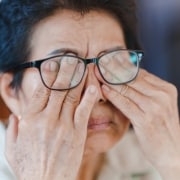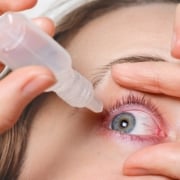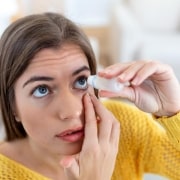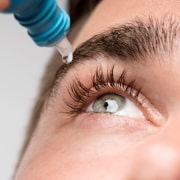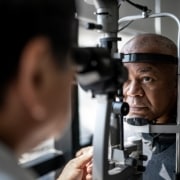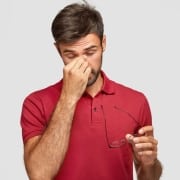Why do My Eyes Feel Dry All the Time?
Your eyes should naturally produce lubrication, which helps to keep them comfortable and functioning as they should. But if you find that your eyes seem to be dry a lot of the time, you should visit with your Champaign, IL optometrist. In the meantime, here are some possible causes.
Too Much Screen Time
In today’s world, it’s impossible to avoid screens 100% of the time unless you’re a Luddite living off the grid. And while that’s a viable way of life for many, most of us have to interact with technology on a day-to-day basis, including using screens for work, play, navigation and so many essentials of life. But did you know that just the act of looking at screens can make your eyes feel dry? It’s all down to the fact that when people look at screens they blink 50-66% less, compared to their normal blink rate. On average, a person blinks 15-20 times per minute, but when focusing on a screen, this can drop to as low as 7-10 blinks per minute. This reduced blinking can contribute to dry eye syndrome. So if your eyes feel dry a lot, consider how much screen time you’re getting.
Environmental Factors
Dry, windy or air-conditioned environments can accelerate tear evaporation, leaving your eyes feeling parched. Indoor heating and air conditioning reduce humidity levels, making dry eye symptoms worse. People who fly a lot may also experience worsened dryness due to the low humidity in airplane cabin air.
Underlying Health Conditions
Certain medical conditions and medications can interfere with tear production. Conditions like diabetes, thyroid dysfunction, Sjogren’s syndrome, rheumatoid arthritis and lupus can all reduce the body’s ability to produce tears.
If your eyes are chronically dry, don’t just ignore the problem, because dry eyes can lead to secondary complications. Come in to Champaign Eye Professionals for a dry eye evaluation in Champaign, IL. We have advice and treatments that can help.

